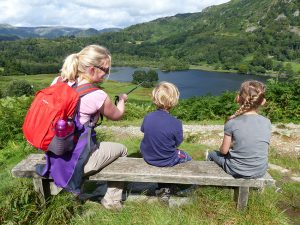Support us from £3/month
We deal with almost 1000 cases a year assisting communities, groups and individuals in protecting their local spaces and paths in all parts of England and Wales. Can you help us by joining as a member?
We shall be submitting evidence to the government’s review of England’s designated landscapes; this nicely coincides with their seventieth anniversary next year.

Rydal Water, Lake District
On 27 May the environment secretary Michael Gove launched a review of the national parks and areas of outstanding natural beauty (AONBs), to be led by author and journalist Julian Glover. We welcome this move.
The terms of the review are encouraging. The minister has emphasised that it is not intended to weaken or undermine existing protections or geographic scope, but the aim is to focus ‘on how designated areas can boost wildlife, support the recovery of natural habitats and connect more people with nature’.
The review will consider, among other things, the existing statutory purposes of national parks and AONBs, the alignment of these purposes with the government’s 25-year environment plan, the case for extension or creation of new designated areas, finance, and how to improve governance, the environment and biodiversity.
Advisory panel
There is an advisory panel consisting of Nicola Blackwood (former Conservative MP for Oxford West and Abingdon), Ewen Cameron (chair of the former Countryside Agency), Jim Dixon (former chief executive of the Peak District National Park authority), Jake Fiennes (manager of Holkham estate, Norfolk), Sarah Mukherjee (former BBC and rural affairs correspondent), and Fiona Reynolds (former director-general of the National Trust). There will be no formal sessions with the panel.
Of course, we want to see our designated areas offering exemplary public access. Also, commons feature massively in these landscapes: 79 per cent of England’s commons by area, and 33 per cent by number, are in the national parks and AONBs.
Public benefit
We shall argue for agricultural payments that encourage landowners and commoners to manage the commons for public benefit. And we shall take the opportunity to argue for a national speed limit of no higher than 40 mph on unfenced roads across commons, at least in the designated areas, to support grazing and discourage fencing.
Our evidence will include a call for a toughening of the vague duty on public bodies to ‘have regard to’ national park and AONB purposes, which is too often neglected.
The review is an opportunity to make the designated areas even more worthy of their status.
Evidence must be submitted by 18 December 2018.
